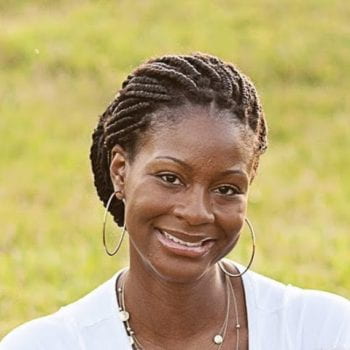
Dr. Kelly Diggs-Andrews, PhD is the founder and CEO of Diggs-Andrews Consulting, LLC, a consulting and media company whose goal is to broaden accessibility to science careers through science outreach, diversity training, and professional development.
She is also a Master Facilitator with the National Research Mentoring Network (NRMN) and a Certified Trainer with the Center for the Improvement of Mentored Experiences in Research (CIMER). Dr. Diggs-Andrews earned her BS in Biology from Alabama State University (2005) and her PhD in Biology and Biomedical Sciences from Washington University in St. Louis (2010).
In her previous role, she served as the Education and Mentoring Fellow with the American Society for Microbiology (ASM) and spearheaded an NSF-funded program to develop ASM’s mentoring capacity, to advance investigator-educator collaborations and interdisciplinary research, and to broaden participation of underrepresented individuals in science, technology, engineering, and math (STEM) fields.
You can listen to our full chat or read some highlights from our conversation with Dr. Diggs-Andrews.
Q: How did you go about becoming a facilitator and mentoring expert from a science PhD?
A: When I was a graduate student, I took advantage of learning about different careers by attending Wash U-sponsored seminars featuring speakers, mainly DBBS alums, from all walks of life. I took note of the pieces of their jobs I liked and thought I would want in my career and slowly pieced it together. I knew I wanted to take complex things and make them more understandable to generate a broad impact. I found a unique position at the American Society for Microbiology (ASM) and decided to apply and even though I had no affiliation with microbiology, I was the right fit for that position.
Q: What made you the right fit?
A: I was crafted my graduate experience to be what I wanted it to be. I participated heavily in Young Scientist Program (YSP) and Summer Focus, I cofounded the Association of Black Biomedical Graduate Students (ABBGS) to broaden access to Black students. All of these things informed me that I wanted to eventually do things that made impactful changes.
Q: Have you ever or do you still grapple with imposter syndrome, and if so, how do you manage it?
A: Oh goodness, yes, I had a constant battle to overcome imposter syndrome, and I manage it through thinking about my past successes and accomplishments and positive affirmations. These remind me of the “why” I am doing it, and it’s a quick reminder for me. Imposter syndrome is prevalent and can prohibit someone from not trying for something. You can also use an “accountabili-buddy”; when you’re having a bad day, talk with a friend who can remind you of how great you really are. Whatever you have to do to get out of that space, do it!
Q: Do have tips and tricks for graduate students to build resilience?
A: Absolutely. You can gain resilience from yourself, but also from your mentors. You want to promote self-efficacy through central cores, including role models, acknowledging past achievements, and having the space to improve psycho-social wellbeing. Instead of looking at it as failures, look at it as places to improve, grow, and learn. This simple shift in mindset can create a world of difference. The goal is to avoid a deficit model and move to an appreciative model of thinking.
Q: What part of your job do you get the most joy from?
A: I love being able to travel to lots of different places to work with scientific investigators, academic leaders, and educators and share my skills to help make tangible changes for a more equitable, responsible, and ethical scientific landscape, so that all scientist trainees can see their value. This is a part of my “why”. I think building mentors who are effective will have huge impacts on the long-term futures of students.
Q: What other positions were you considering?
A: I am a good writer, so I looked into science writing and editing. I also enjoyed the administrative role of YSP and ABBGS, so I asked other admins I knew what that type of position would entail. I thought about teaching because I did that a lot and while I liked it, I didn’t want to do it exclusively. I also looked at policy fellowships at AAAS and NIH. None of these position felt totally right; each seemed to be missing a key component from my “list of things I wanted to do”.
Q: What do you recommend for a graduate student do to right now?
A: Start making connections through your science societies. There are opportunities there to help you work out what you imagine your dream career to be. Use myIDP to assess your skills, interests, and values. You can make an account on NRMNet and when you find someone who may be a good fit, you can ask them to be your mentor. Lastly, make some goals for yourself. You should make both short and long-term goals which are flexible, but not too flexible (aka SMART goals).
You can contact or follow Dr. Diggs-Andrews on any of the following platforms!
IG: @k.diggsandrews
Twitter: @DrDiggsAndrews
LinkedIN: linkedin.com/in/kellydiggsandrews